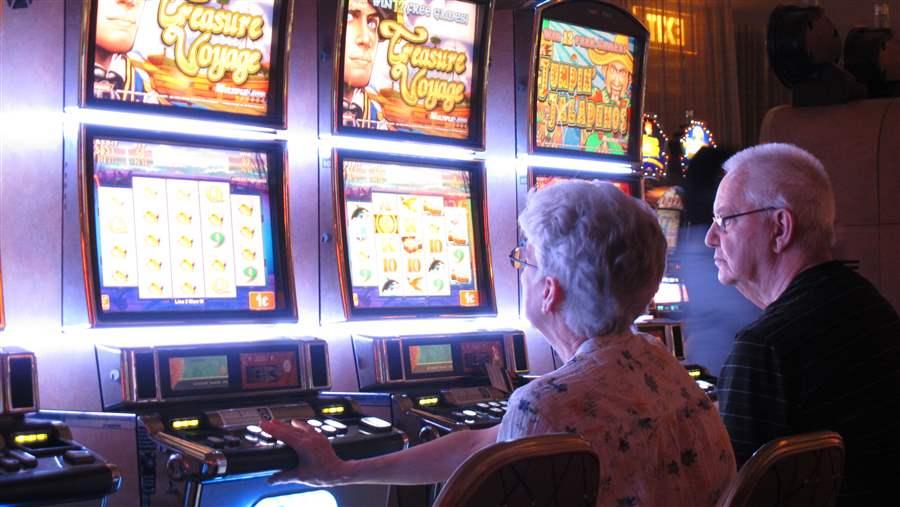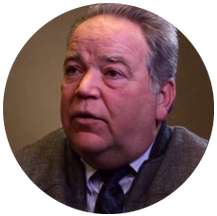She came to my office directly from the hospital where she’d spent the past several days. A woman in her 60s, let’s call her Linda, had suffered what her sister called a “nervous breakdown.”
Quickly I learned that the woman had “lost it” because, overwhelmed by the burdens of caring for her elderly mother, she had taken up gambling as an escape. This seemingly harmless pastime had mutated into a gambling addiction that overtook her life.
She’s not alone. A study by the University of Pennsylvania found that more than 1 in 10 people over 65 are at risk of facing financial problems because of gambling – and they are at greater risk for mental and physical health problems co-occurring with the gambling compulsion.
Stories like Linda’s are prompting our team at Maryhaven to boost outreach efforts to people in their “golden years.” We are working with seniors’ organizations, retirement living communities, faith-based and other community groups to educate them on the life changes that can draw someone into an addiction every bit as difficult to resist as alcohol or drugs. We answer their questions and discuss how to prevent even more tragic outcomes.
Seniors are more susceptible to compulsive gambling than people in other age groups. They have more time on their hands. They are often financially secure and can tap into nest eggs as needed. Yet, with all their wisdom and greater stability, they often struggle with an imbalance in one or more areas of their lives, whether maintaining self-esteem, fostering social and interpersonal relationships, feeling productive, and enjoying fun activities.
Visiting casinos or internet cafes, buying lottery tickets or even the stereotypical bingo can be both exciting and a social event. Everything about these environments, the vibrant colors, lights, sounds, the mounting pile of tear-off “instants,” friendly competition – even the pumped in oxygen – can make it an almost intoxicating experience.
But for that one in 10, addiction grips them and hijacks their brains. They score a “big win” that draws them in. Next, they lose five dollars, and because they feel they can’t afford to lose money, they spend more trying to get it back. They don’t walk away because they can’t.
Older women, like Linda, are more susceptible than men to compulsive gambling. They’ve outlived their husbands because women generally live longer or because of divorce they’re spending their Golden Years alone. They rely more on social connections than men, and the burden of caring for other elderly friends or relatives often falls on women, creating additional stress. Linda, for example, served as her mother’s personal caretaker, housecleaner, cook and driver.
 One of my peers who is a counselor at a problem gambling center in Las Vegas told AARP, “For a lot of the older people we see, it was never about the money. They go to the casino to escape regrets, loneliness, isolation, sadness. And when they start losing money, they find themselves with even bigger problems and regrets.”
One of my peers who is a counselor at a problem gambling center in Las Vegas told AARP, “For a lot of the older people we see, it was never about the money. They go to the casino to escape regrets, loneliness, isolation, sadness. And when they start losing money, they find themselves with even bigger problems and regrets.”
Linda’s gambling compulsion burned through a lot of her retirement money in just over a year. As desperation set in, she began tapping into her mother’s money. She hid her problem well from her sister and two nieces. For a time.
Things reached the boiling point when her sister found out the truth. The trauma and stress triggered Linda’s psychotic break.
Treating seniors addicted to gambling presents some special challenges. Seniors value the independence they’ve worked to earn. They deserve respect for their accomplishments. They believe they’re “old enough to know better.” Guiding them into recovery requires restoring their self-respect and appreciating their life accomplishments.
Physical ailments can contribute to the addiction and impact their treatment. Older people with dementia are at especially high risk of gambling addiction because they are unable to recognize limitations or use appropriate judgments. And dopamine agonists, a class of prescription drugs used to treat the symptoms of Parkinson’s disease and restless limb syndrome, are associated with triggering compulsive gambling in some people, according to Marc Potenza, M.D., a professor of psychiatry at Yale University who studies problem gambling. This has been backed up by various black box warnings from the FDA.
Successful treatment of compulsive gambling in seniors requires close coordination between us and the patient’s medical doctor.
But I’ve found that seniors also possess some characteristics that boost recovery. They know how to work hard. They understand how to push through challenges and survive. They grew up being frugal and can adapt to financial changes that require sacrifice.
Linda hasn’t gambled in more than a year. She’s healing the wounds between her and her family. She attends Gamblers Anonymous meetings with people half her age when she’s frustrated. She refuses to yield to negative thinking. And she’s paying back what she can from her monthly disability check.
If you find a loved one in a similar situation, here are some questions you can ask to help evaluate:
- Is he/she preoccupied with gambling, constantly talking about it, or planning to gamble versus doing her normal activities?
- Is he/she gambling more and more money to get the same level of excitement?
- Is he/she using her retirement funds or other savings to gamble, or is she pawning or selling personal items to get money to gamble with?
- Has he/she lost control to the point that she can’t she set a limit of time and money to spend in the casino, and stick to it?
- Does he/she become uncomfortable, angry or lie when you ask her about her gambling activities?
We deliver this message when we visit with senior groups. If you want us to discuss problem gambling for seniors you know or help, fill out our confidential form or call us at 614-324-5425. If you or a senior friend or family member need immediate help after hours, call Ohio’s 24-hour gambling helpline, 1-800-589-9966.
Regardless of age, seniors can always get one more chance.

